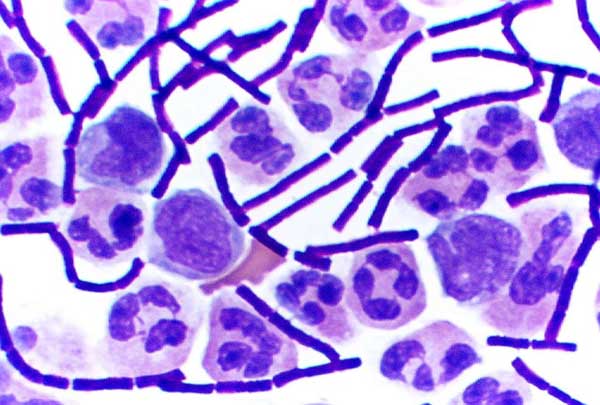|
Listeria Welshimeri
Listeria welshimeri is a species of bacteria. It is a Gram-positive, facultatively anaerobic, motile, non-spore In biology, a spore is a unit of sexual or asexual reproduction that may be adapted for dispersal and for survival, often for extended periods of time, in unfavourable conditions. Spores form part of the life cycles of many plants, algae, ...-forming bacillus. It is non-pathogenic and non-hemolytic. It was isolated from decayed vegetation in the United States by H. J. Welshimer, after whom the species is named. The species was first proposed in 1983.Jocelyne Rocourt and Patrick A. D. Grimont. ''Listeria welshimeri'' sp. nov. and ''Listeria seeligeri'' sp. nov. International Journal of Systematic Bacteriology, Oct. 1983, p. 866-869, Vol. 33. No. 4. References External linksType strain of ''Listeria welshimeri'' at Bac''Dive'' - the Bacterial Diversity Metadatabase welshimeri Bacteria described in 1983 {{Bacilli-stub ... [...More Info...] [...Related Items...] OR: [Wikipedia] [Google] [Baidu] |
Gram-positive
In bacteriology, gram-positive bacteria are bacteria that give a positive result in the Gram stain test, which is traditionally used to quickly classify bacteria into two broad categories according to their type of cell wall. Gram-positive bacteria take up the crystal violet stain used in the test, and then appear to be purple-coloured when seen through an optical microscope. This is because the thick peptidoglycan layer in the bacterial cell wall retains the stain after it is washed away from the rest of the sample, in the decolorization stage of the test. Conversely, gram-negative bacteria cannot retain the violet stain after the decolorization step; alcohol used in this stage degrades the outer membrane of gram-negative cells, making the cell wall more porous and incapable of retaining the crystal violet stain. Their peptidoglycan layer is much thinner and sandwiched between an inner cell membrane and a bacterial outer membrane, causing them to take up the counterstain ... [...More Info...] [...Related Items...] OR: [Wikipedia] [Google] [Baidu] |
Spore
In biology, a spore is a unit of sexual or asexual reproduction that may be adapted for dispersal and for survival, often for extended periods of time, in unfavourable conditions. Spores form part of the life cycles of many plants, algae, fungi and protozoa. Bacterial spores are not part of a sexual cycle, but are resistant structures used for survival under unfavourable conditions. Myxozoan spores release amoeboid infectious germs ("amoebulae") into their hosts for parasitic infection, but also reproduce within the hosts through the pairing of two nuclei within the plasmodium, which develops from the amoebula. In plants, spores are usually haploid and unicellular and are produced by meiosis in the sporangium of a diploid sporophyte. Under favourable conditions the spore can develop into a new organism using mitotic division, producing a multicellular gametophyte, which eventually goes on to produce gametes. Two gametes fuse to form a zygote which develops into ... [...More Info...] [...Related Items...] OR: [Wikipedia] [Google] [Baidu] |
Listeria
''Listeria'' is a genus of bacteria that acts as an intracellular parasite in mammals. Until 1992, 17 species were known, each containing two subspecies. By 2020, 21 species had been identified. The genus is named in honour of the British pioneer of sterile surgery Joseph Lister. ''Listeria'' species are Gram-positive, rod-shaped, and facultatively anaerobic, and do not produce endospores. The major human pathogen in the genus ''Listeria'' is ''L. monocytogenes''. It is usually the causative agent of the relatively rare bacterial disease listeriosis, an infection caused by eating food contaminated with the bacteria. Listeriosis can cause serious illness in pregnant women, newborns, adults with weakened immune systems and the elderly, and may cause gastroenteritis in others who have been severely infected. Listeriosis is a serious disease for humans; the overt form of the disease has a case-fatality rate of around 20%. The two main clinical manifestations are sepsis an ... [...More Info...] [...Related Items...] OR: [Wikipedia] [Google] [Baidu] |


